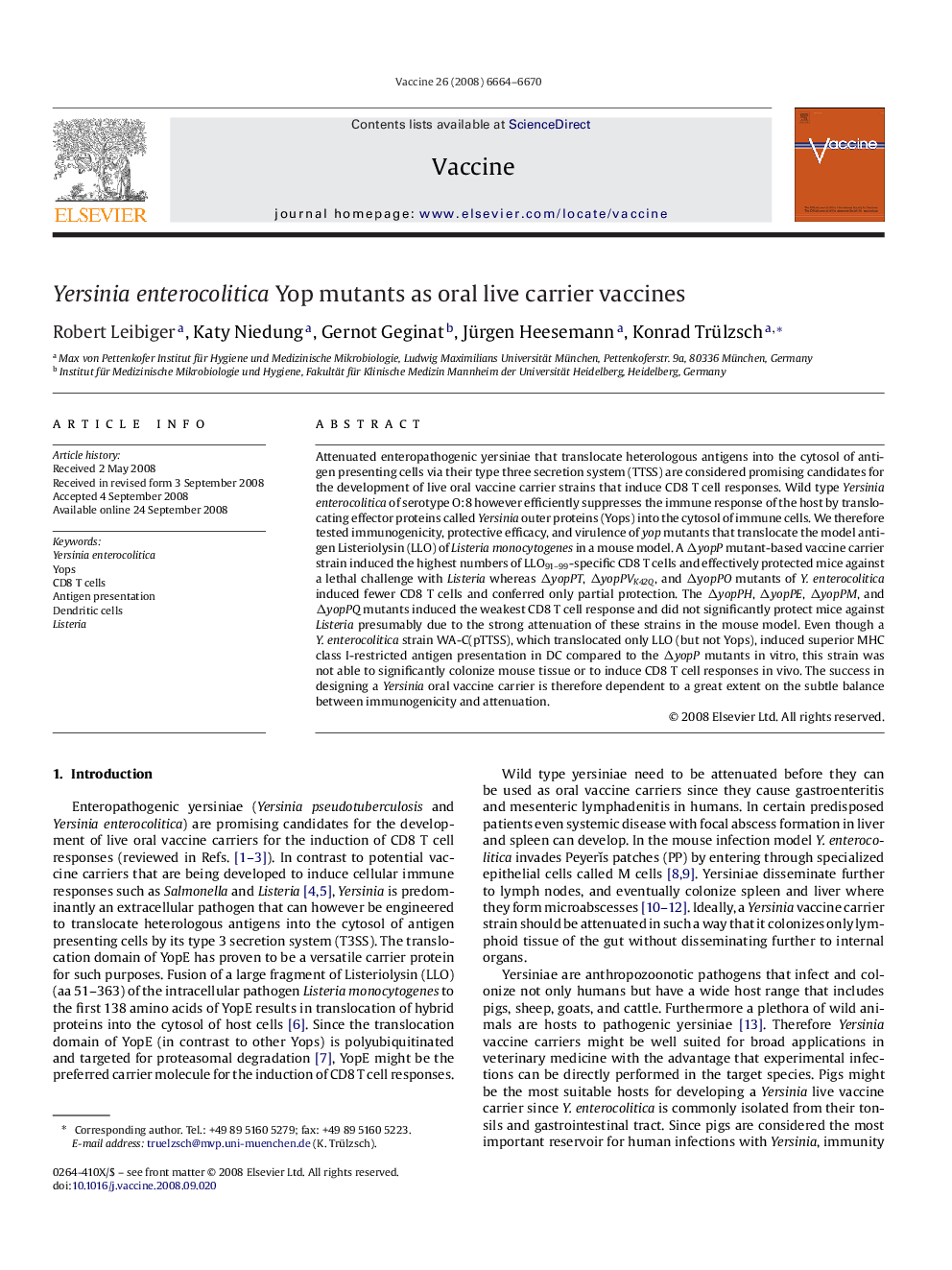| Article ID | Journal | Published Year | Pages | File Type |
|---|---|---|---|---|
| 2405857 | Vaccine | 2008 | 7 Pages |
Attenuated enteropathogenic yersiniae that translocate heterologous antigens into the cytosol of antigen presenting cells via their type three secretion system (TTSS) are considered promising candidates for the development of live oral vaccine carrier strains that induce CD8 T cell responses. Wild type Yersinia enterocolitica of serotype O:8 however efficiently suppresses the immune response of the host by translocating effector proteins called Yersinia outer proteins (Yops) into the cytosol of immune cells. We therefore tested immunogenicity, protective efficacy, and virulence of yop mutants that translocate the model antigen Listeriolysin (LLO) of Listeria monocytogenes in a mouse model. A ΔyopP mutant-based vaccine carrier strain induced the highest numbers of LLO91–99-specific CD8 T cells and effectively protected mice against a lethal challenge with Listeria whereas ΔyopPT, ΔyopPVK42Q, and ΔyopPO mutants of Y. enterocolitica induced fewer CD8 T cells and conferred only partial protection. The ΔyopPH, ΔyopPE, ΔyopPM, and ΔyopPQ mutants induced the weakest CD8 T cell response and did not significantly protect mice against Listeria presumably due to the strong attenuation of these strains in the mouse model. Even though a Y. enterocolitica strain WA-C(pTTSS), which translocated only LLO (but not Yops), induced superior MHC class I-restricted antigen presentation in DC compared to the ΔyopP mutants in vitro, this strain was not able to significantly colonize mouse tissue or to induce CD8 T cell responses in vivo. The success in designing a Yersinia oral vaccine carrier is therefore dependent to a great extent on the subtle balance between immunogenicity and attenuation.
